Vodafone Update on Harnessing UK Mobile Network to Measure Rain

Broadband ISP and mobile operator Vodafone has revealed more details about how they’re harnessing their UK mobile network to provide more accurate rain “nowcasting” (i.e. short-term forecast of rainfall – from a few minutes to a few hours ahead). This is supported by the River Severn Partnership’s Advanced Wireless Innovation Region (RSPAWIR) and Wireless DNA.
The trial is being run across the River Severn catchment area, which has a long history of flooding. An estimated £230 million per year is said to be spent across the region to manage and mitigate damage to infrastructure brought by floods. Suffice to say that being able to understand exactly where the rain may be falling or will soon fall can help to mitigate or manage such problems.
Crucially, rain and other forms of precipitation in the atmosphere can absorb and scatter microwave radio signals (i.e. the links that exist between some mobile masts), reducing their strength. The interference this creates is typically considered a negative thing, which can reduce the performance of such connections.
Advertisement
However, the same disruptions also create data that can be processed to “function as a virtual rain gauge, providing pinpointed and precise precipitation data“, which is what Vodafone has been experimenting with. “Wireless DNA will monitor all signal variations to identify those caused by precipitation and share this data with the River Severn Partnership to enhance early warning systems for flooding and improve flood defences for local residents,” said the mobile operator. The additional data will supplement conventional systems, like radar and rain gauges, with a dense layer of ground-level observations.
Vodafone says their mobile network can work as an environmental sensor because the data offers “greater accuracy than radar and more detail than weather stations“, improving forecasts with localised insights. The data this delivers could also be used to support the information that is already being collected via millions of Vodafone’s worldwide Internet of Things (IoT) based environmental sensors.
Nick Gliddon, Director of Vodafone Business UK, said:
“Storms and extreme weather are becoming more frequent and destructive. Working with River Severn Partnership, we can use our cutting-edge technology to provide greater insight on weather forecasting and help mitigate the impact of extreme events.
This example shows how, through innovation, our mobile network can have a real impact on not just the lives of residents who live and work in the River Severn area, but for communities across the UK.”
Mark is a professional technology writer, IT consultant and computer engineer from Dorset (England), he also founded ISPreview in 1999 and enjoys analysing the latest telecoms and broadband developments. Find me on X (Twitter), Mastodon, Facebook, BlueSky, Threads.net and Linkedin.
« Focus Group Acquires UK Telecoms and Mobile Provider Matrix247





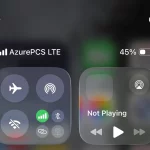
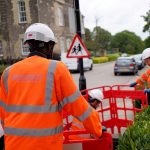



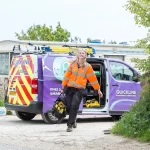
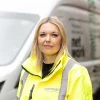
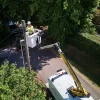









































Is this a delayed April Fool? Can’t they forecast where their poor coverage is first and get on with fixing that first? And eliminate the fake 5G NSA with proper 5G SA. Let the Met Office boffins meddle with their radar and worry about the rain.
Well, their network is useless for any actual mobile data usage so might as well put it to good use as a rain detector I guess.